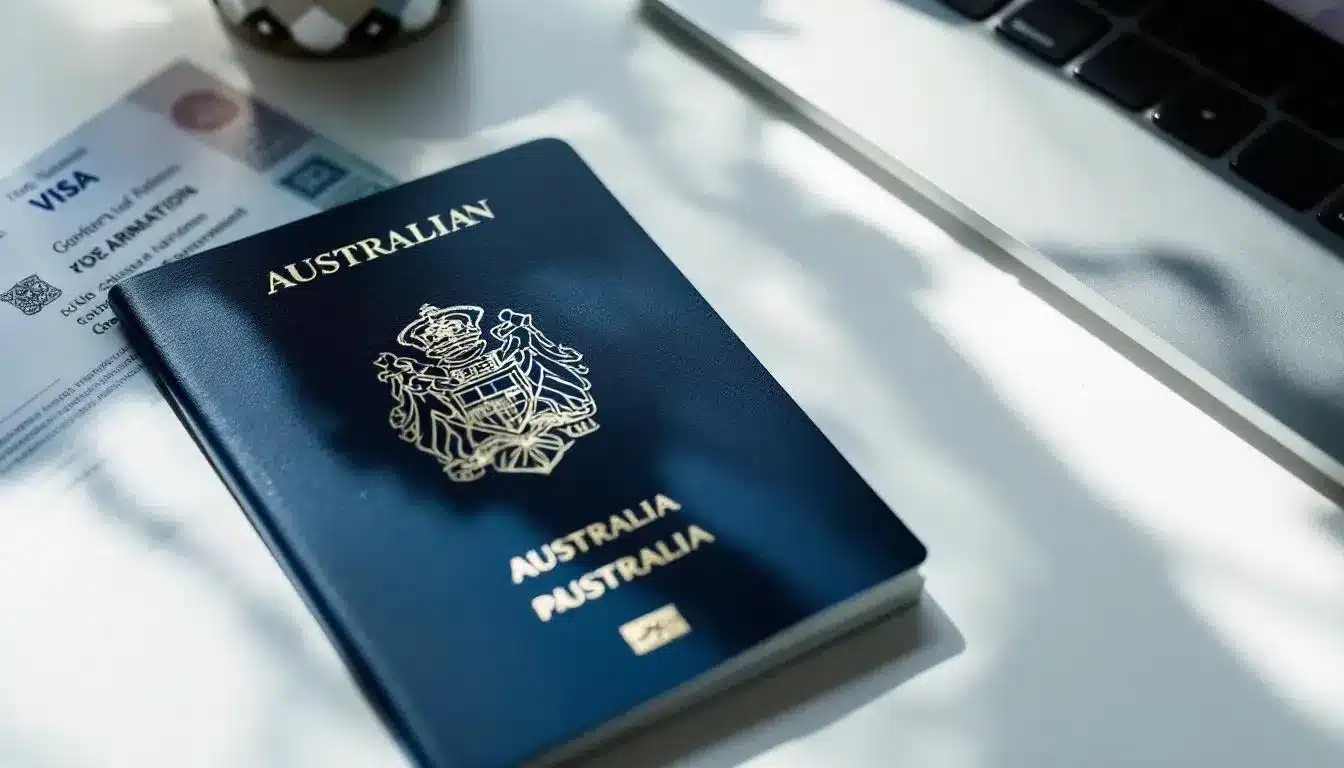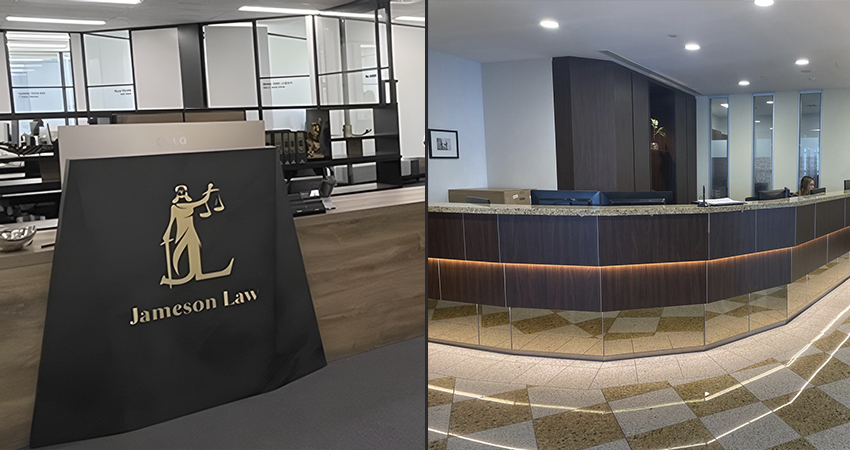Major Australian immigration changes are coming on 1 July, reshaping the landscape for skilled migrants, families, and international students.
At Jameson Law, we’ve analysed these updates to provide you with a clear understanding of what’s ahead.
From increased skilled visa places to new pathways for permanent residency, these changes will impact countless visa applicants and current holders.
Let’s explore the key modifications and how they might affect your immigration journey.
Skilled Migration Overhaul
Australia’s skilled migration program will undergo a significant transformation on July 1st, 2025. These updates address critical skill shortages and boost economic growth across the country.
Expanded Visa Allocations
The Australian government has announced a substantial increase in skilled visa places for the upcoming year. The Department of Home Affairs reports that the skilled stream will see an allocation of 142,400 places. This reflects the government’s commitment to attract top talent to Australia’s workforce.
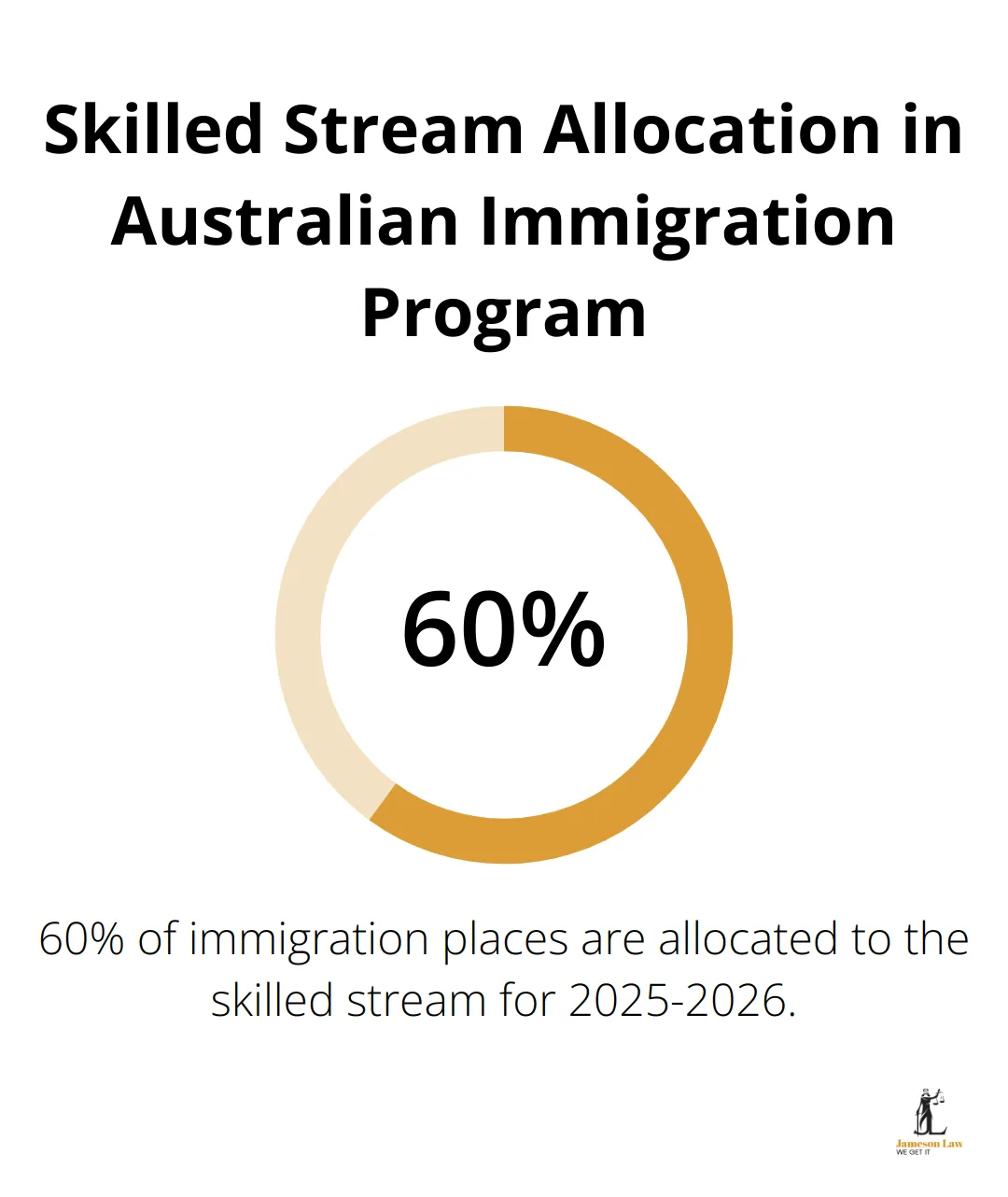
Dynamic Occupation Lists
The traditional Skilled Occupation List (SOL) will be replaced by a more responsive system. The new Occupation Shortage List (OSL) will provide a detailed view of occupations in shortage in Australia and by each state and territory. This change allows for quicker adjustments to Australia’s skill needs, which benefits both employers and prospective migrants.
The latest OSL update has added several IT roles (including cybersecurity specialists and data analysts), responding to the growing demand in the tech sector. Applicants in these fields may now find it easier to qualify for skilled visas.
Regional Australia Focus
The government will strongly encourage skilled migrants to settle in regional areas. New incentives include additional points for regional study and work experience in the points-based visa system. Applicants can now earn up to 15 points for living and working in regional Australia (compared to the previous maximum of 10 points).
The Subclass 190 Skilled Nominated visa lets nominated skilled workers live and work in Australia as permanent residents.
Navigating the New System
These changes present both opportunities and challenges for prospective migrants. The increased visa allocations and dynamic occupation lists offer more pathways to Australian residency. However, the system’s complexity has also grown.
To navigate these new regulations effectively, migrants should:
- Stay informed about quarterly OSL updates
- Consider regional opportunities for faster permanent residency
- Reassess their points score under the new system
- Seek professional advice to understand their best visa options
As we move to the next section on family stream visa modifications, it’s important to note that these skilled migration changes will have ripple effects across other visa categories. The government’s focus on addressing skill shortages and promoting regional development will influence policies across the entire immigration landscape.
Family Stream Visa Modifications: A New Era for Australian Immigration
Partner Visa Streamlining
The Australian government will introduce a single-stage model for partner visa applications. This change will significantly reduce waiting times. The Partner Visa 820 processing time takes between nine to eighteen months, but this can vary based on individual circumstances and the complexity of the application.
Applicants should prepare for more stringent evidentiary requirements. It’s advisable to collect comprehensive relationship evidence early, including:
- Shared financial commitments
- Social media interactions
- Testimonials from friends and family
Parent Visa Quota Expansion
The government plans to increase the parent visa quota. While exact numbers await confirmation, early indications point to a 30% increase in available places.
A new Parent Visa category will offer three- or five-year temporary stays with a pathway to permanent residency. This addresses current backlogs and provides more flexibility for families.
Prospective applicants should note that financial requirements will likely increase. The current Assurance of Support bond for contributory parent visas (AUD 14,000 for the main applicant and AUD 2,000 for adult dependants) may rise by 10-15%.
Dependent Child Criteria Revisions
The definition of a dependent child for visa purposes will change. The age limit for dependent child visas will increase from 18 to 21 years, allowing more families to stay together.
This change comes with stricter financial dependency tests. Children aged 18-21 must prove financial reliance on their parents due to:
- Full-time study
- A disability that prevents full-time work
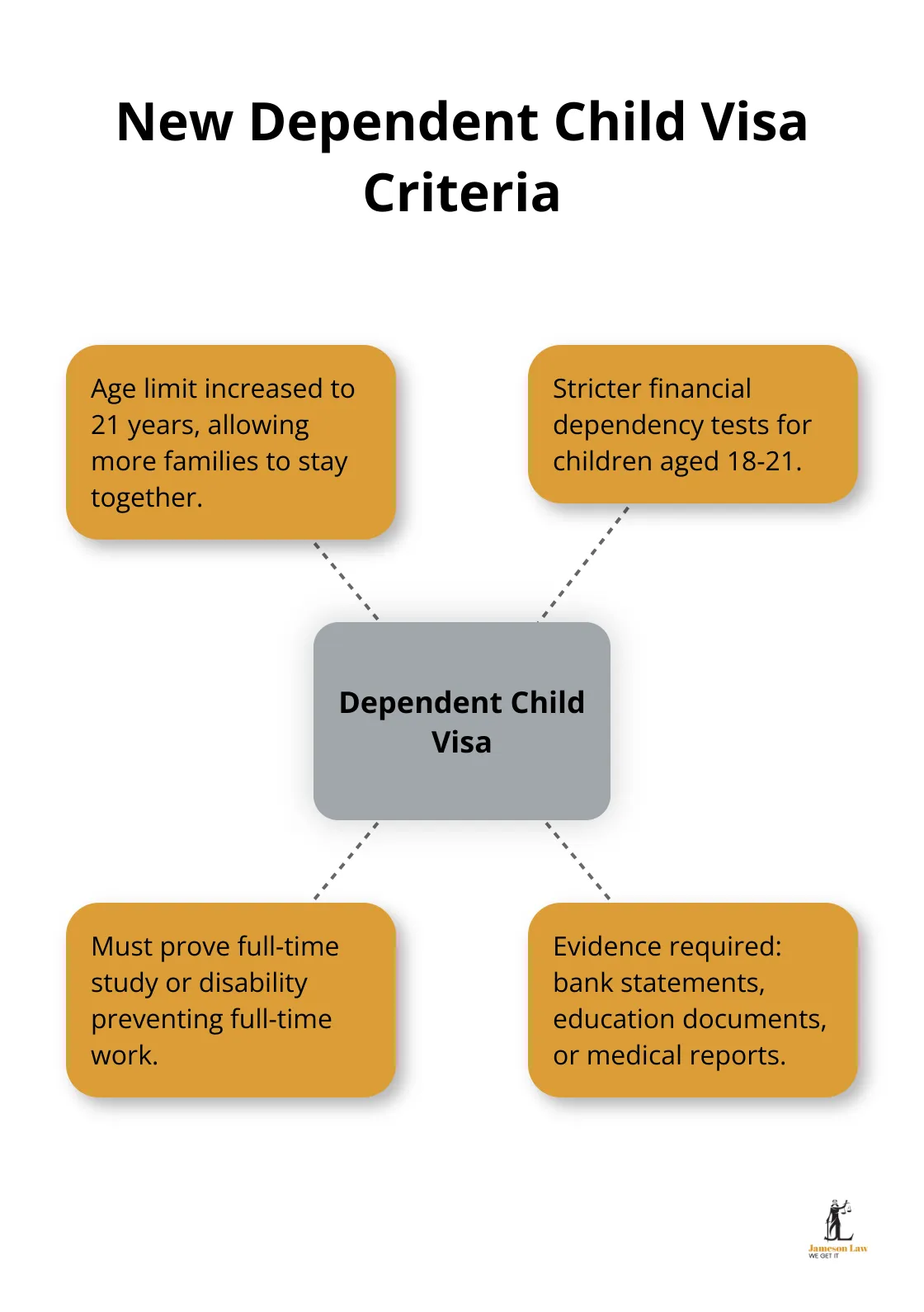
Families planning to include adult children in visa applications should start collecting evidence of financial support and dependency. This might include bank statements showing regular transfers, education enrolment documents, or medical reports detailing disabilities.
Impact on Visa Applicants
These changes will reshape the landscape for family migration to Australia. The streamlined partner visa process offers hope for faster reunification, while the expanded parent visa quota opens doors for more families to bring elderly relatives to Australia.
However, the increased financial requirements and stricter dependency tests for adult children may present challenges for some applicants. It’s essential to understand these new regulations and prepare accordingly.
As we move forward, the next section will explore significant reforms to student and graduate visas, which will further transform Australia’s immigration landscape.
Student and Graduate Visa Reforms: Expanding Opportunities for International Talent
Extended Post-Study Work Rights
The Australian government will introduce significant changes to student and graduate visas from July 1, 2025. These reforms will reshape the landscape for international education in Australia, offering extended work rights and new pathways to permanent residency.
International students who complete their studies in Australia will soon benefit from extended post-study work rights. The Department of Home Affairs has announced new rules for the 485 visa, which will bring significant changes for international graduates seeking to extend their stay and work in Australia.
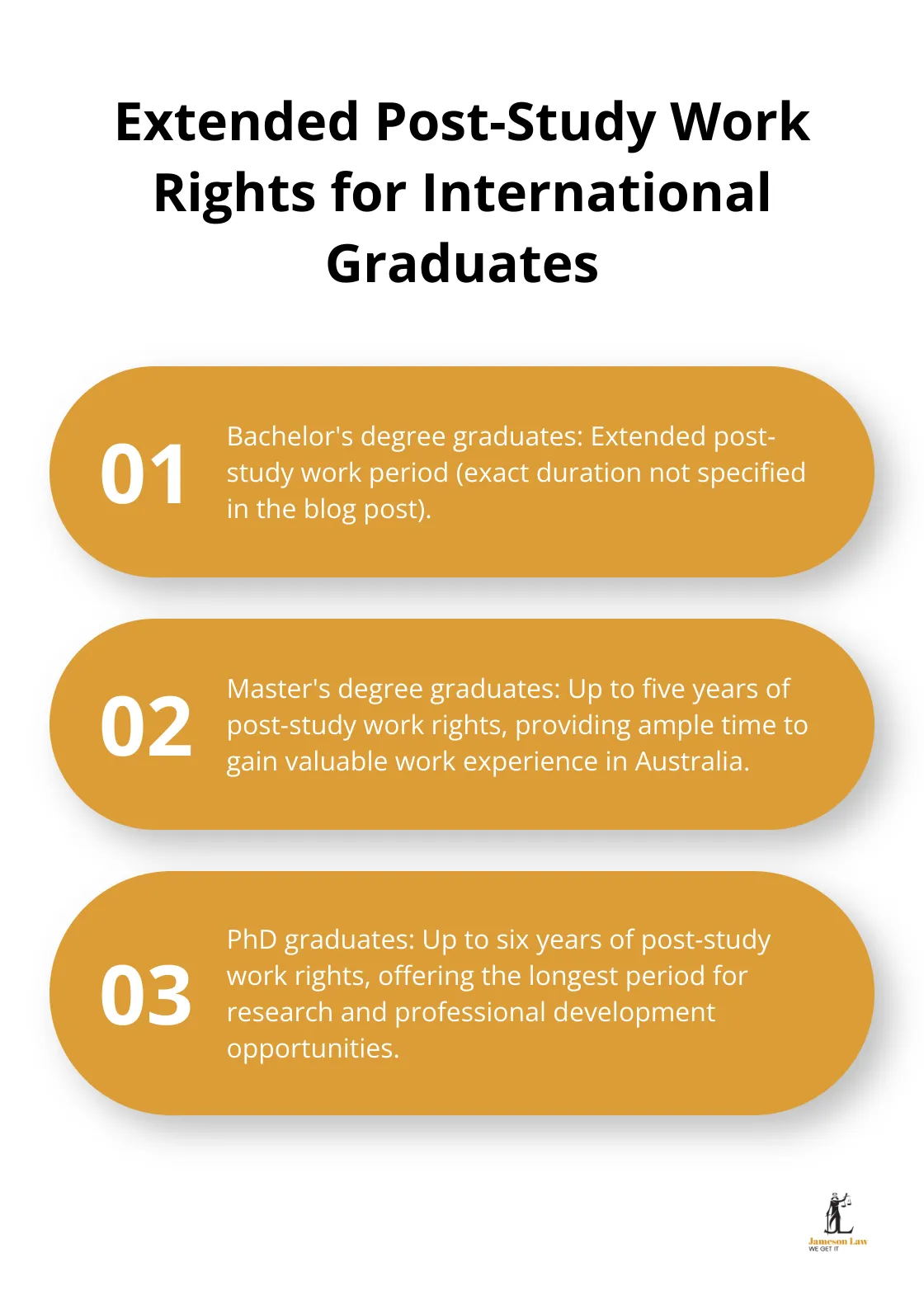
For those pursuing postgraduate qualifications, the post-study work period will extend even further:
- Master’s degree graduates: up to five years
- PhD graduates: up to six years
These extensions will give international graduates more time to gain valuable work experience in Australia, potentially leading to skilled migration pathways. It’s a mutually beneficial situation, allowing graduates to build their careers while contributing to the Australian economy.
New Permanent Residency Pathways
The Australian government will introduce new pathways to permanent residency for international students. One significant change is the introduction of a points-based system specifically for graduates. Under this system, graduates can earn ponts based on factors such as:
- Level of qualification obtained in Australia
- Duration of study in Australia
- Work experience gained during and after studies
- Regional study and work experience
Graduates who accumulate enough ponts may be eligible to apply for permanent residency without needing employer sponsorship. This change offers a more direct route to settling in Australia for high-achieving international students.
Additionally, the government will create a new visa subclass for graduates in areas of critical skills shortage. This visa will provide a fast-track to permanent residency for those working in fields such as healthcare, engineering, and IT.
English Language Requirement Updates
The English language requirements for student visas will also undergo changes. The Australian government will introduce a more nuanced approach to language proficiency assessment.
Instead of a one-size-fits-all IELTS score requirement, the new system will consider the specific language demands of different courses and indutries. For example, students enrolling in highly technical courses may need to demonstrate higher English proficiency in specific areas relevant to their field of study.
Moreover, the government will expand the list of accepted English language tests. In addition to IELTS and TOEFL, tests such as the Pearson Test of English (PTE) Academic and the Occupational English Test (OET) will now be widely accepted for student visa applications.
These changes will ensure that international students have the necessary language skills to succeed in their studies and future careers in Australia, while also providing more flexibility in how they can demonstrate their proficiency.
Impact on International Education
These reforms will likely increase Australia’s attractiveness as a study destination. The extended post-study work rights and clearer pathways to permanent residency will be strong incentives for international students considering their global education options.
Universities and education providers should prepare for potential increases in international student enrolments. They may need to adapt their support services and career guidance programs to help students navigate these new opportunities.
Final Thoughts
The Australian immigration changes coming on 1 July 2025 will transform the country’s approach to skilled migration, family visas, and international education. These updates address skill shortages, support regional development, and enhance Australia’s appeal to global talent. The new Occupation Shortage List and increased regional incentives offer fresh opportunities for skilled migrants, while families will benefit from streamlined partner visa processes and expanded parent visa quotas.
International students and graduates will find Australia an even more attractive destination, with extended post-study work rights and clearer pathways to permanent residency. These changes will impact current and prospective visa holders, creating new opportunities but also introducing complexities that require careful navigation. Applicants must stay informed about evolving occupation lists, reassess their eligibility under new point systems, and prepare comprehensive documentation to meet updated criteria.
Professional guidance can help you understand and leverage these new immigration regulations. At Jameson Law, we specialise in assisting clients with visa options, application preparation, and the entire immigration process. Our experienced team can provide tailored advice to help you successfully achieve your migration goals (whether you’re a skilled professional, a family looking to reunite, or an international student planning your future).


